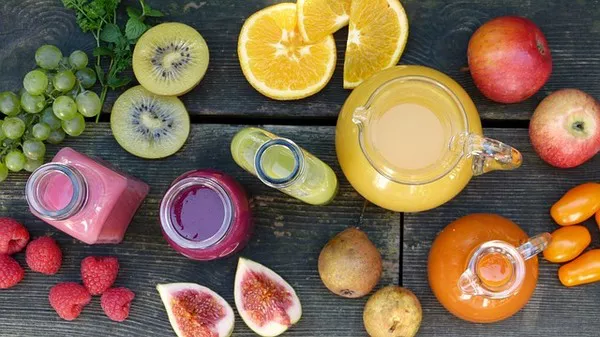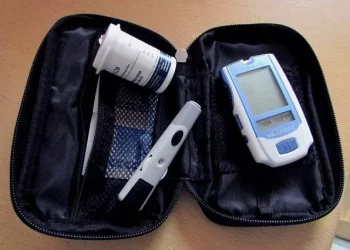Type 2 diabetes is a chronic condition that affects how your body metabolizes sugar (glucose), leading to higher-than-normal blood sugar levels. Managing blood sugar is crucial for individuals with type 2 diabetes to prevent complications like heart disease, nerve damage, kidney failure, and vision problems. While medication plays a significant role in managing this condition, diet is equally important. A balanced, well-controlled diet can significantly improve blood sugar management and overall health.
For those with type 2 diabetes, avoiding certain foods can make a considerable difference in blood sugar control. The goal is to eat nutrient-rich foods that provide steady energy while avoiding foods that spike blood glucose levels. Understanding which foods should be limited or eliminated is key to living well with type 2 diabetes.
Refined Carbohydrates and Sugary Foods
One of the most significant contributors to blood sugar spikes is refined carbohydrates. These foods are rapidly converted into sugar by the body, causing a sharp increase in blood glucose levels.
White Bread and Pasta
White bread, pasta, and other refined grain products lack fiber and are digested quickly. This causes a rapid rise in blood sugar levels. Opting for whole grains like whole wheat bread, quinoa, brown rice, or whole-grain pasta provides more fiber and helps to slow down the absorption of sugars.
Sugary Snacks and Desserts
Cakes, pastries, cookies, candies, and ice cream are high in sugar and refined carbs, making them major culprits in elevating blood glucose levels. These foods may give an instant energy boost, but they are quickly metabolized into glucose, leading to a spike and subsequent crash. It is essential to limit these sugary treats and instead focus on healthier alternatives like fresh fruits, low-sugar yogurt, or small portions of dark chocolate.
Sugary Beverages
Soft drinks, energy drinks, and sweetened fruit juices are loaded with sugar and offer little to no nutritional value. These drinks cause a rapid increase in blood glucose and provide only empty calories. Drinking water, unsweetened herbal teas, or sparkling water with a splash of lemon is a healthier choice for managing blood sugar levels.
Fried and Processed Foods
Fried and processed foods are not only high in unhealthy fats but can also contribute to weight gain and insulin resistance, which worsens diabetes. These foods tend to have a high glycemic index (GI), meaning they can cause a spike in blood sugar.
French Fries and Fried Chicken
Foods that are deep-fried or coated with batter, such as French fries and fried chicken, are high in unhealthy trans fats and can trigger inflammation in the body. These foods are also calorie-dense, contributing to weight gain and exacerbating insulin resistance. Grilled or baked alternatives are healthier options.
Processed Meats
Processed meats such as bacon, sausages, hot dogs, and deli meats are high in sodium, unhealthy fats, and preservatives, which can contribute to hypertension and increase the risk of heart disease. Excessive sodium intake is particularly concerning for individuals with diabetes, as it can further damage kidney function. Choosing lean meats, such as turkey or chicken, and cooking them with minimal fat is a better option.
Pre-packaged Snacks
Many pre-packaged snacks like chips, crackers, and pastries contain hydrogenated oils, trans fats, and excessive sodium, which contribute to unhealthy cholesterol levels and weight gain. It is essential to choose healthier snacks like mixed nuts, vegetables with hummus, or whole-grain crackers.
High-Sodium Foods
Salt is often used to enhance flavor, but too much sodium in the diet can increase the risk of hypertension, heart disease, and kidney damage — all of which are complications of diabetes. People with type 2 diabetes should be particularly mindful of their sodium intake to protect their heart and kidneys.
Canned Soups and Vegetables
Many canned foods, including soups and vegetables, are packed with sodium as a preservative. A high-sodium diet can lead to water retention, elevated blood pressure, and increased strain on the kidneys. Opting for fresh vegetables or low-sodium canned goods and making soups from scratch can help reduce sodium intake.
Frozen Meals
Frozen dinners, particularly those marketed as quick and easy options, often contain high amounts of sodium. In addition to contributing to high blood pressure, these meals can be high in unhealthy fats and refined carbohydrates. Cooking fresh meals with whole foods is a healthier and more nutritious choice.
Salted Nuts and Snack Foods
Although nuts are generally a healthy snack option, salted varieties are high in sodium, which can negatively impact blood pressure. Choose unsalted nuts or make your own trail mix with raw nuts and dried fruits for a heart-healthy snack.
Full-Fat Dairy Products
While dairy products are a good source of calcium, vitamin D, and protein, full-fat versions may contain excessive saturated fats, which can increase cholesterol levels and promote insulin resistance. Individuals with type 2 diabetes should limit their intake of full-fat dairy and choose lower-fat alternatives when possible.
Full-Fat Milk, Cheese, and Yogurt
Whole milk, high-fat cheese, and regular yogurt are rich in saturated fats, which can increase the risk of cardiovascular disease. Opting for low-fat or fat-free versions of dairy products can help maintain heart health while still providing essential nutrients.
Cream and Butter
Cream and butter are rich in calories and unhealthy fats. They should be limited in the diabetic diet to prevent weight gain and increased cholesterol levels. Using healthier fats, such as olive oil or avocado, for cooking and dressing salads can be beneficial.
Trans Fats and Hydrogenated Oils
Trans fats are artificial fats that are commonly found in processed and packaged foods. These fats are created through the hydrogenation process and are known to increase LDL (bad) cholesterol levels while decreasing HDL (good) cholesterol levels. Trans fats also promote inflammation and insulin resistance.
Baked Goods
Many commercially prepared baked goods, such as pastries, cookies, and cakes, contain trans fats to extend shelf life. These fats contribute to the buildup of plaque in the arteries, increasing the risk of heart disease. It is important to check labels for partially hydrogenated oils and avoid these products.
Microwave Popcorn
Some microwave popcorn varieties are made with trans fats, which can contribute to weight gain and heart disease. Choosing air-popped popcorn or popcorn made with healthy oils like olive oil is a better choice.
Alcoholic Beverages
While moderate alcohol consumption may be permissible for some individuals with type 2 diabetes, excessive drinking can negatively affect blood sugar control and overall health. Alcohol can cause blood sugar levels to fluctuate unpredictably, either raising or lowering them. It can also interfere with the effectiveness of diabetes medication and contribute to liver damage.
Sweet Cocktails and Wine
Sweet cocktails made with sugary mixers, such as margaritas, daiquiris, or piña coladas, can significantly spike blood sugar levels. Similarly, sweet wines and liqueurs have a high sugar content and should be avoided. Instead, opt for dry wines or spirits mixed with water, soda, or other sugar-free options.
Beer
Beer contains both carbohydrates and alcohol, which can affect blood sugar levels. While light beer may be a better option due to fewer carbohydrates, it should still be consumed in moderation. It is crucial to monitor blood sugar levels closely when consuming alcohol.
High-Glycemic Index (GI) Foods
The glycemic index (GI) measures how quickly a food raises blood glucose levels. Foods with a high GI cause rapid increases in blood sugar and should be limited in the diet of a person with type 2 diabetes. Conversely, foods with a low GI cause a slower, more gradual increase in blood glucose levels.
Potatoes
Potatoes, particularly when they are baked or mashed, have a high glycemic index and can quickly raise blood sugar levels. Sweet potatoes, which have a lower GI, are a better option for people with diabetes. When consuming potatoes, it’s better to opt for roasted or boiled versions with the skin on.
Rice
White rice has a high GI and can cause blood sugar spikes. Brown rice or other whole grains like quinoa, barley, and farro are healthier choices, as they are digested more slowly and have a lower GI.
Breakfast Cereals
Many breakfast cereals are made from refined grains and have a high glycemic index. It’s best to avoid sugary cereals and opt for whole-grain options like steel-cut oats, which provide fiber and nutrients without causing rapid blood sugar spikes.
Conclusion
For individuals with type 2 diabetes, diet plays a central role in blood sugar management and overall health. Avoiding foods that cause rapid blood sugar spikes — such as refined carbohydrates, sugary treats, fried foods, and high-sodium products — can help maintain stable glucose levels and reduce the risk of complications. Instead, focusing on a balanced diet that includes whole grains, lean proteins, healthy fats, and plenty of vegetables can improve both short-term and long-term health outcomes.
As with any health condition, it is essential to consult with a healthcare provider or a registered dietitian before making significant dietary changes. A personalized plan can help individuals with type 2 diabetes make informed choices and live a healthier, more balanced life.
Related topics:
What Should a Diabetic with Kidney Disease Eat for Breakfast?
























